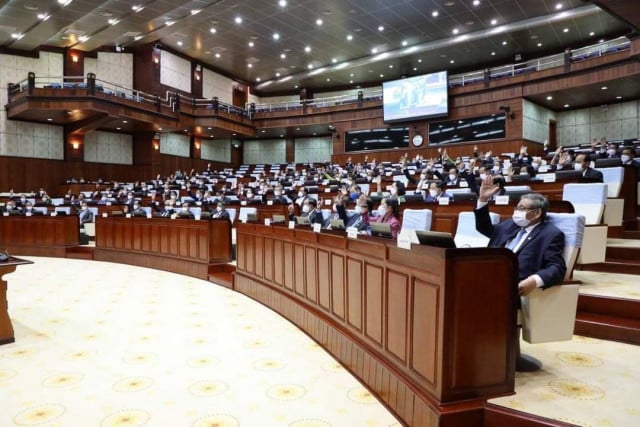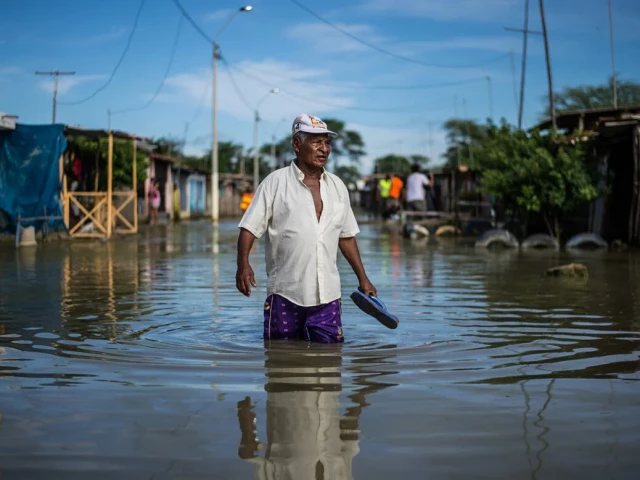Information Ministry to Write Charter for Professional Journalism

- By Ou Sokmean
- April 23, 2024 3:10 PM
PHNOM PENH – The Ministry of Information is gathering the necessary inputs to write a charter for professional journalism. Local media outlets and journalists were involved in the drafting process.
Information Minister Neth Pheaktra claimed on April 19 that the charter will serve as the highest code of conduct for the journalism sector and underscored that, so far, multiple codes of ethics have been implemented in newsrooms with no common charter overseeing the profession.
For the past 30 years, the ministry has provided an opportunity for journalism communities and news outlets to create a common professional code of conduct. Still, it has never been successful, according to a ministry report released on April 19 at the Professional Ethics Orientation and First Inputs Collection Workshop.
Multiple media professionals and representatives of news outlets attended the event to give their opinions about the drafting process.
The spokesperson of the ministry said there are professional ethics codes for all careers in the country to ensure the respect of professional accuracy and integrity.
The ministry, however, has noted the lack of harmonization in setting up a common professional ethics for journalists because each community stands firmly on its viewpoint.
During the workshop, the ministry opened a discussion for all newsrooms to state their perspectives and to provide important inputs, which will serve as a foundation to draft the National Charter for Professional Journalism.
“The charter will be the supreme charter for journalists, which will state all major sections, and the journalism communities may process the charter into an ethics in their newsroom in accordance with the charter,” Pheaktra said.
While the process is still in its early stages with the collection of media professionals’ opinions, the ministry said the Charter will be implemented as a bill, once drafted.
Puy Kea, the president of the Club of Cambodian Journalists (CCJ), thinks this is a good initiative, and should start being implemented in public news institutions. Kea hopes the charter will also reach social media users or citizen journalists who have no training in journalism and could be the first to benefit from the guidelines of a national charter.
The CCJ already has a professional code of ethics for its members as well as training courses and promotions of the ethics among local journalists, Kea said, expecting to excerpt any additional ethics that the club has yet to implement.
“We will be waiting [for the charter]. After the ministry establishes the charter, will some sections be used in the club, or is there any part that the club can take in enabling the charter to be better,” he said.
Nop Vy, the executive director of the Cambodian Journalists Alliance (CamboJA), sees this initiative as an opportunity to improve the journalism sector, especially in implementing professional ethics.
Vy, however, is concerned about the degree of protection, power, duty, and freedom the charter will give to journalists. Therefore, Vy suggested the ministry should be open to all journalism communities to join in writing the charter, avoiding restricting the freedom of the press.
“Previously, the ministry also admitted that journalism should be independent which allows journalists to do their work with freedom and professional ethics, contributing to social development as well as the other three powers: executive, legislature and judiciary,” he said.
Vy wants to see all journalists’ participation in writing the charter, based on what they want, how they want to practice their work, and how they want the punishment or fines for those not implementing the ethics correctly.
“I want to see the journalists write and compile all these stories into the charter,” Vy requested.
After the reformation and re-organization, there are over 1,000 online news institutions and more than 100 news publishing institutions.
In 2024, the ministry issued more than 6,000 news IDs, double the number of 2023. The ministry issues the ID for all media institutions without limiting the number.
*This article was modified to clarify that local outlets were involved in the drafting process.
Originally written in Khmer for ThmeyThmey, this story was translated by Meng Seavmey for Cambodianess.















